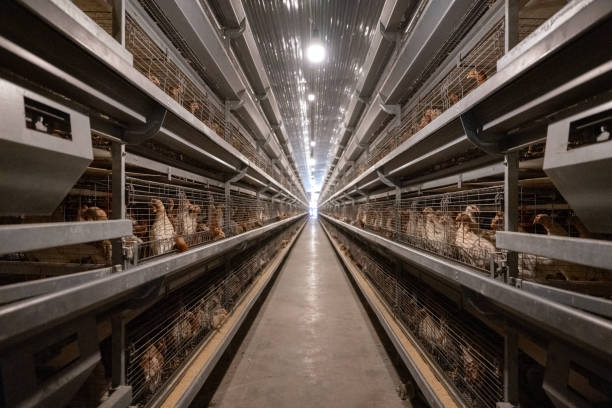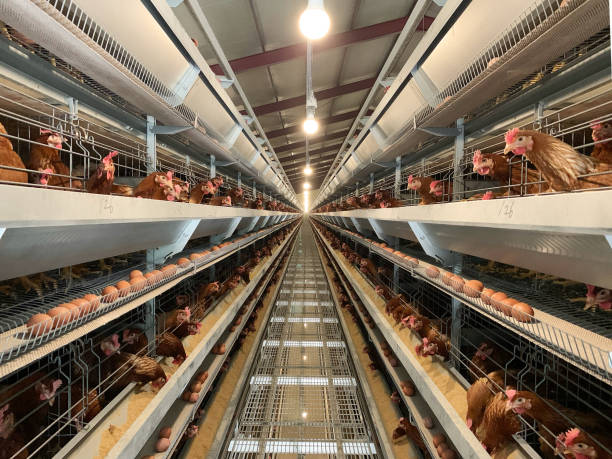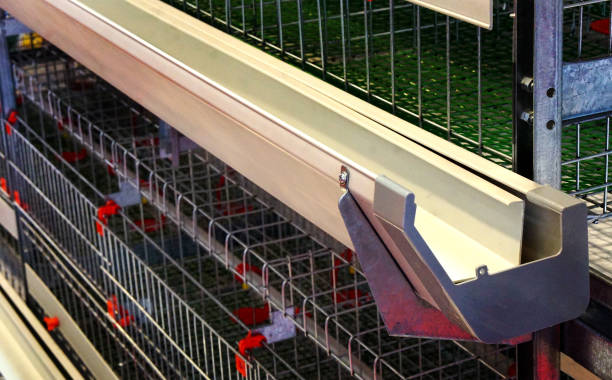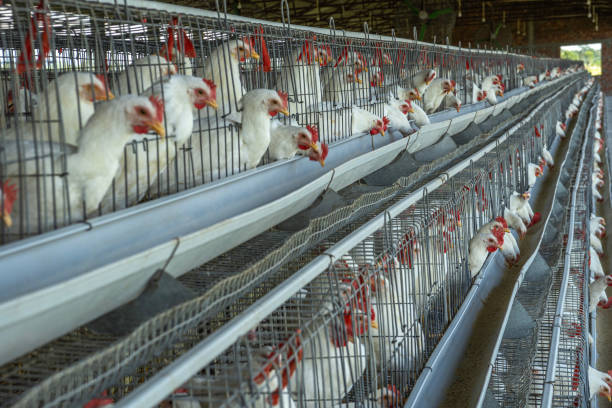
Kienyeji Chicken Farming Solutions in Kenya
Kienyeji Chicken Farming Solutions in Kenya
If you’ve been involved in poultry farming in Kenya, especially with the growing demand for kienyeji (indigenous) chicken, you already know that this isn’t just a trend—it’s a sustainable source of income and nutrition for many small-scale farmers. What makes kienyeji chickens so popular? They’re hardy, require less feed, thrive in free-range conditions, and their meat and eggs are highly sought after in local markets due to better taste and natural rearing methods. However, despite these advantages, most farmers face challenges such as low egg production, high chick mortality, disease outbreaks, and poor housing systems that limit growth potential.
This is where modern, smart farming solutions come in. At Livi Poultry Equipment from Zhengzhou Livi Machinery Manufacturing Co., Ltd., we’ve spent over a decade specializing in poultry equipment tailored to meet the real needs of African farmers, including those raising kienyeji chickens. Our mission? To help you turn your passion for kienyeji farming into a profitable, scalable business—without compromising on animal welfare or sustainability.

Modern Housing Systems Designed for African Conditions
One of the biggest challenges traditional kienyeji farmers face is inadequate housing. Many still use wooden or mud structures that expose birds to predators, diseases, and extreme weather. Without proper ventilation or droppé management, humidity builds up, leading to respiratory issues and parasites like mites and lice. But upgrading doesn’t mean going fully industrial—it means working smarter with cost-effective, durable designs.
Our poultry cage systems blend modern technology with practical usability. For example, our galvanized steel wire mesh cages provide excellent airflow while preventing rodents and snakes from entering. These cages are elevated off the ground, keeping birds dry and reducing contact with waste—this alone can cut down disease transmission significantly. For farmers who want to maintain the free-range spirit but still protect their flocks, we offer hybrid systems: secure night-time housing with automatic feeders and waterers, plus safe daytime run areas.
We also customize layouts based on your farm size and terrain. Whether you’re managing 50 birds on a backyard plot or scaling up to thousands across multiple units, our team helps design efficient, space-saving configurations that improve bird movement and monitoring. Plus, all our materials are UV-resistant and corrosion-protected—built to last through Kenya’s varying climates, from Nairobi’s mild highs to Mombasa’s coastal humidity.
Boost Productivity with Automated Feeding & Watering
You might wonder, “Do I really need automation for kienyeji chickens?” The answer is yes—if you want consistency, lower labor costs, and healthier birds. Let me explain: manually feeding dozens (or hundreds) of birds every day takes time, and inconsistent access to food and water stresses them. Stress leads to reduced laying rates and slower growth. That’s why automated feeding and watering lines can be game-changers.
Our nipple drinking system ensures clean, leak-free water delivery. No more spilled water turning bedding into mud or attracting flies. It also reduces the risk of contamination since the water stays enclosed until the bird triggers the valve. Combine this with our trough feeders made from high-quality galvanized metal, and you’ll notice immediate improvements—less feed wastage, fewer pests, and stronger, more active birds.
For larger farms, we integrate chain-feed distribution systems that run along rows of cages. A single person can refill one central hopper, and the system does the rest. This kind of innovation saves hours each day and allows farmers to focus on breeding plans, health checks, or market development instead of routine chores.
Hatching Success Made Simpler with Precision Incubators
Another major pain point in kienyeji farming is hatching. Traditionally, farmers rely on broody hens to sit on eggs. While this works on a small scale, it limits batch sizes, introduces inconsistency, and ties up productive hens during incubation periods. More importantly, hatch rates under natural conditions average around 60–70%, sometimes lower if temperatures fluctuate or eggs are disturbed.
Our electric poultry incubators change the game entirely. With digital control panels, precise temperature and humidity sensors, and automatic egg-turning mechanisms, our machines achieve hatch rates above 90%. We offer models ranging from 100-egg capacity for homesteads to 5,000-egg commercial units for co-ops and agribusinesses. Each unit is energy-efficient and compatible with Kenya’s power supply—even works smoothly with solar inverters, making it ideal for rural areas with unstable electricity.
These incubators give you full control over breeding cycles. You can plan hatches weeks ahead, ensuring steady supply for sale or restocking. And because you’re not dependent on broody hens, your laying flock keeps producing without interruption. Some of our clients in Nakuru and Kisumu have doubled their annual chick output within six months of using our incubators—proof that the right tools make all the difference.
Smart Design Meets Sustainability
At Livi, we don’t believe in one-size-fits-all solutions. That’s why every piece of equipment we manufacture—from cage tiers to manure scraper systems—is developed with input from farmers across East Africa. We visit farms, talk to breeders, and test prototypes under real Kenyan conditions before finalizing any product.

Durability is non-negotiable. All components are hot-dip galvanized after knitting, which provides long-term rust resistance—even in humid environments. Cages are welded securely, avoiding loose wires that could injure birds. Nesting boxes are sloped correctly so eggs roll gently into collection trays, reducing breakage. Everything is built to reduce labor, improve hygiene, and support animal well-being.
But beyond hardware, we offer full support—from site planning and installation guidance to after-sales service. Once you connect with us, whether via WhatsApp, email, or a factory visit—we walk you through choosing the right setup for your goals. We even assist with basic training on daily operation, cleaning routines, and minor repairs so that your investment keeps paying off for years.
Ready to Upgrade Your Kienyeji Farm?
Whether you’re just starting out or looking to expand your current setup, now is the perfect time to bring professional-grade efficiency into your kienyeji chicken operation. Modern equipment doesn’t mean losing tradition—it means preserving the benefits of indigenous breeds while boosting productivity, profits, and peace of mind.
Imagine running a farm where your birds grow faster, lay more eggs, hatch consistently, and live healthier lives—all with less daily effort. That’s the reality countless farmers in Kenya and across Africa are experiencing thanks to smart, affordable innovations from Livi.
So what’s next? Share your farm details with us—the number of birds, available space, current challenges—and we’ll craft a custom solution that fits your budget and vision. Click below, send us a message, or call directly. Let’s build a thriving kienyeji poultry business together.
FAQ
What are kienyeji chickens?

Kienyeji chickens refer to indigenous chicken breeds in Kenya known for their hardiness, good taste, and adaptability to local environments. They’re often raised in free-range systems and preferred for organic meat and egg production.
Are modern cage systems suitable for kienyeji chickens?
Absolutely. While kienyeji birds are used to roaming, they still benefit from secure housing at night. Our cage systems allow ventilation, comfort, and protection while maintaining natural behavior patterns during the day when let out.
How much does a complete kienyeji chicken setup cost?
Cost varies based on size and automation level. A small-scale setup for 100 birds with basic cages, feeders, and waterers starts around KSh 80,000. Larger, automated systems range upward depending on specs. We offer flexible packages and advice to match your budget.
Can I use solar power with Livi incubators?
Yes! Most of our incubators are designed to work efficiently with solar inverters. We recommend pairing them with stable battery backups to maintain consistent temperature during cloudy days or power fluctuations.
Do you deliver and install in Kenya?
We regularly ship containers to Mombasa Port and arrange inland clearance and delivery to Nairobi, Kisumu, Eldoret, and other regions. On-site installation and training are available upon request.
Is maintenance difficult for your equipment?
Not at all. Our systems are built for ease of use—daily cleaning is simple, and parts like feeders or water nipples are easy to replace. We provide maintenance guides and support via phone or video if needed.
Can the cages be disassembled for relocation?
Yes, our modular cage systems are designed to be dismantled, moved, and reassembled without damage. This is helpful if you plan to relocate or expand your farm later.
How long do the cages last?
With proper care, galvanized cages from Livi can last 10–15 years or more, even in tough outdoor conditions. The hot-dip galvanization process protects against rust and wear.
Do you offer training for new farmers?
Yes, we offer practical startup guidance, including husbandry tips, feeding schedules, and disease prevention strategies. We also collaborate with local partners who provide hands-on workshops.
Where is Livi Machinery located?
Livi Poultry Equipment is part of Zhengzhou Livi Machinery Manufacturing Co., Ltd. based in Zhengzhou, China. We export globally, with strong partnerships across Kenya and East Africa for logistics and customer support.
